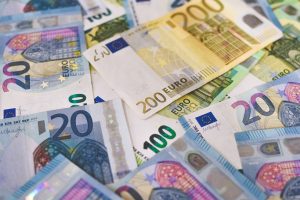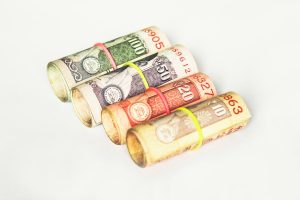Forex is a term that refers to the foreign exchange market, where currencies of different countries are traded against each other. It is the largest financial market in the world, with an estimated daily turnover of $6.6 trillion. The forex market is open 24 hours a day, five days a week, and operates across all time zones.
The forex market is a decentralized market, which means there is no central exchange or clearinghouse. Instead, currencies are traded through a network of banks, brokers, and other financial institutions. This means that the forex market is highly liquid, with traders able to buy and sell currencies at any time without having to worry about finding a buyer or seller.
Forex trading involves buying one currency while simultaneously selling another currency. The goal of forex trading is to make a profit from the difference in the exchange rates between the two currencies. For example, if a trader buys the euro and sells the US dollar, they are hoping that the euro will appreciate in value relative to the US dollar, allowing them to sell the euro for more dollars than they bought it for.
Forex trading can be done through a variety of methods, including spot trading, futures trading, and options trading. Spot trading is the most common method of forex trading, where traders buy and sell currencies at the current market price. Futures trading involves trading currency contracts for delivery at a future date, while options trading gives traders the right, but not the obligation, to buy or sell currencies at a predetermined price.
There are many factors that can affect the exchange rates of currencies in the forex market, including economic policies, geopolitical events, and market sentiment. Traders use a variety of strategies to analyze these factors and make informed trading decisions. Technical analysis involves using charts and indicators to identify patterns and trends in the market, while fundamental analysis involves analyzing economic and political data to determine the underlying strength or weakness of a currency.
One of the key benefits of forex trading is its accessibility. Unlike other financial markets, such as the stock market, forex trading can be done with a relatively small amount of capital. This makes it an attractive option for individuals looking to invest in the financial markets without having to risk large amounts of money.
However, forex trading also comes with risks. The high degree of leverage used in forex trading can amplify both profits and losses, meaning that traders can potentially lose more than their initial investment. Additionally, the forex market can be highly volatile, with sudden changes in exchange rates leading to significant losses for traders.
To minimize these risks, traders often use risk management strategies, such as setting stop-loss orders to limit potential losses and diversifying their portfolios across different currencies and trading strategies.
In conclusion, forex is a term that refers to the foreign exchange market, where currencies are traded against each other. It is the largest financial market in the world and operates 24 hours a day, five days a week. Forex trading involves buying one currency while selling another currency, with the goal of making a profit from the difference in exchange rates. While forex trading is accessible and potentially profitable, it also comes with risks that traders must be aware of and manage.






